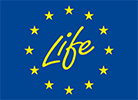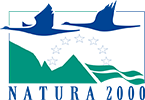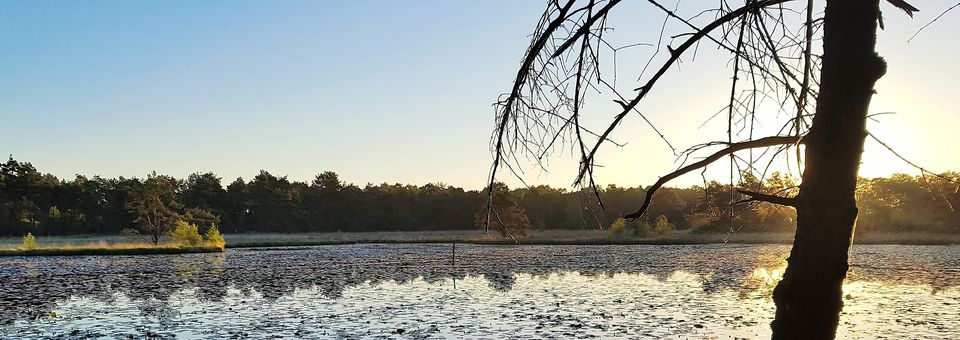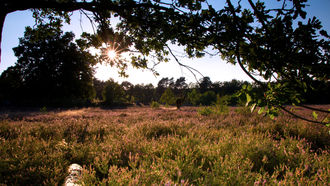Kronsbergheide © Daxtier/CC BY-SA 4.0
download picturemain content
Project
TRANSREGIONAL IMPLEMENTATION
Project structure
The EU Commission approved the proposal for the LIFE IP “Atlantic Sand Landscapes” starting from 1st October 2016, as the first German Integrated LIFE Project in the priority area “Nature and Biodiversity”. Until 30th September 2026, altogether 16,875 million Euros are available for the Project; 60 percent of this amount is funded by the European Commission. In addition, complementary funds will be incorporated. The project duration of ten years is divided into four phases with the duration of 2.5 years each.
Cooperation
The overall responsibility for the Project lies with the Ministry for Environment, Conservation and Transport (MUNV) as the Coordinating Beneficiary. In Lower Saxony, the Ministry for the Environment of Lower Saxony (MU) as the Associated Beneficiary is responsible for the implementation. The overall coordination of the Integrated Project was assigned to the District Government of Münster. The LIFE IP Team located there is also responsible for the project management and the implementation of the actions in North Rhine-Westphalia. These take place in cooperation with the district governments which are responsible for the respective areas and the established regional technical and implementation working groups. For the actions taking place in Lower Saxony, this role is taken by the project team in the Lower Saxony Water Management, Coastal Defence and Nature Conservation Agency (NLWKN).
Technical support, especially in regard to conceptual work, is provided by the respective technical authorities of the federal states, the State Agency for Nature, Environment and Consumer Protection (LANUV) in North Rhine-Westphalia and the Lower Saxony Water Management, Coastal Defence and Nature Conservation Agency (NLWKN).
On the superordinate national level, the Federal Ministry for the Environment, Nature Conservation, Building and Nuclear Safety (BUMB) as well as the German Federal Agency for Nature Conservation (BfN) are involved.
The actions are implemented in cooperation with the following institutions and organisations:
- District Governments and Lower Nature Conservation Authorities of North Rhine-Westphalia
- 28 districts and urban districts in North Rhine-Westphalia
- 26 rural districts and urban districts in Lower Saxony
- The German Federal Environmental Foundation (Deutsche Bundesstiftung Umwelt, DBU) and its subcompany DBU Naturerbe GmbH
- Institute for Federal Real Estate (BImA)
- Landesbetrieb Wald und Holz NRW as well as the Regional Forestry Offices
- Lower Saxony State Forest
- Agricultural Chamber North Rhine-Westphalia
- Agricultural Chamber Lower Saxony
- Westphalia-Lippe Agricultural Association (WLV)
- Rhenish Agricultural Association (RLV)
- Landvolk Lower Saxony
- Federation of Foresters of North Rhine-Westphalia
- Biological Stations in North Rhine-Westphalia
- Nature and Biodiversity Conservation Union (NABU), regional associations and local chapters
- Friends of the Earth Germany (BUND), regional associations and local chapters
- Landesarbeitsgemeinschaft Naturschutz und Umwelt NRW (LNU)
Project development
The LIFE IP proposal was developed in two phases: From January until October 2015, the concept note as well as the final proposal had been drafted with financial support from the European Commission via the sub-programme “Technical Assistance”. In a first step, the regional associations and institutions for conservation, agriculture and forestry both in North Rhine-Westphalia and Lower Saxony had been informed. Then, on the regional level, the (rural) districts and urban districts, the Biological Stations and the associations were involved. At the federal level, cooperation with the other federal states within the Atlantic Region took place as well.
The proposal for the Integrated LIFE Project “The exemplary implementation of the EU 2020 target with a focus on oligotrophic habitats on sand in the Atlantic region of Germany” (acronym: Atlantic Region DE) was delivered to the European Commission after close cooperation with all stakeholders on 1st April 2016. After thorough adjustments with the EU Commission, the LIFE Integrated Project was approved in autumn 2016 and the official start was set to 1st October 2016.




